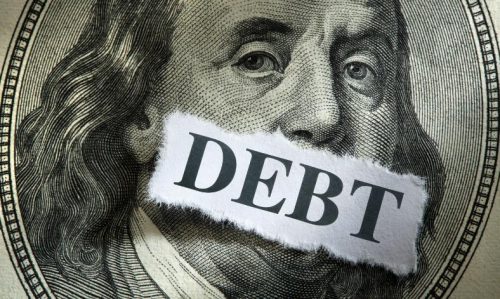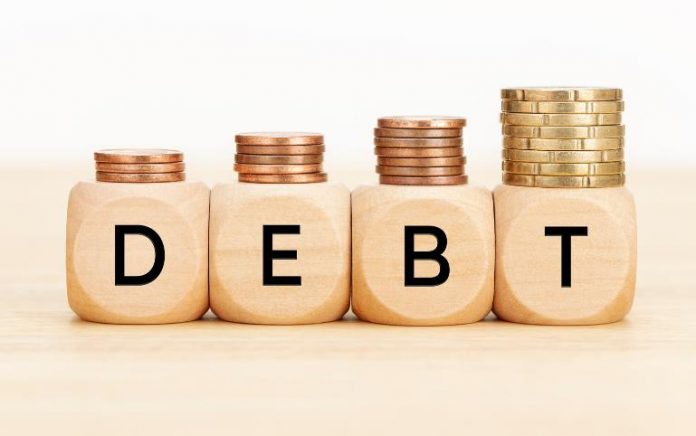Receiving repayment reminders is seldom a pleasant experience, and this reluctance could become problematic if the business can’t physically pay what it owes. As a sole trader or company director, it could be tempting to bury your head in the sand and hope that the business’s creditors get bored of chasing the debts. However, this will only exacerbate problems. The creditors could even escalate proceedings, taking action that could leave longer-lasting harm to the business and, in some cases, your personal finances.
Reminders to repay business debt
 If your business, be it a limited company or small business or sole trader venture, has unpaid debts, creditors can send repayment reminders to try and recover the amount owed. These reminders could be via post, email, or telephone, but they shouldn’t come to your personal address if the debt relates to a company.
If your business, be it a limited company or small business or sole trader venture, has unpaid debts, creditors can send repayment reminders to try and recover the amount owed. These reminders could be via post, email, or telephone, but they shouldn’t come to your personal address if the debt relates to a company.
If you ignore repayment reminders
If you ignore these repayment reminders, the creditors can escalate their recovery efforts. Debt collection agencies could become involved, and creditors may even issue Statutory Demands or County Court Judgements (CCJs).
To avoid longer-lasting damage, you should pay or dispute the CCJ within the time specified in the judgement’s attached paperwork (usually 30 days after the issuing date). Ignoring the CCJ means it will stay on the associated credit file for six years. Having a CCJ on your credit file harms its rating, making it harder to obtain credit and funding.
 Ignoring creditor pressure can even lead to a company’s closure or an individual being made bankrupt. Creditors can issue limited companies with a winding-up petition if they’re owed more than £750, which becomes a winding-up order if it goes through or is uncontested. Consequently, the company’s bank accounts become frozen, making trading impossible and effectively ending the company’s life.
Ignoring creditor pressure can even lead to a company’s closure or an individual being made bankrupt. Creditors can issue limited companies with a winding-up petition if they’re owed more than £750, which becomes a winding-up order if it goes through or is uncontested. Consequently, the company’s bank accounts become frozen, making trading impossible and effectively ending the company’s life.
Businesses should be especially cautious if they owe money to HMRC. The tax office won’t hesitate to wind-up a company or petition for personal bankruptcy.
What if you can’t repay?
If your debt management is poor and don’t have the money and can’t repay your business debts, you shouldn’t bury your head in the sand. The problem won’t disappear and will only worsen if you ignore it.
To alleviate the debt and get the best possible result, you should seek advice as soon as you know that your business cannot repay its outstanding debts. Your first step should be speaking to a licensed and regulated insolvency practitioner.
They can offer you various solutions depending on your circumstances, helping you draw a line under the insolvency and potentially saving the business if you act early enough.
A limited company may be able to repay its outstanding debts in monthly instalments at a rate tailored to what it can afford. This process is called a Company Voluntary Arrangement (CVA) and usually lasts five years. A similar arrangement exists for sole traders and individuals called an Individual Voluntary Arrangement (IVA).
 If more substantial restructuring action is required, administration may be a more suitable process. Administration involves a licensed insolvency practitioner overseeing the company’s affairs and may insist on the sale of the non-profitable parts of the company, making it more appealing to potential buyers.
If more substantial restructuring action is required, administration may be a more suitable process. Administration involves a licensed insolvency practitioner overseeing the company’s affairs and may insist on the sale of the non-profitable parts of the company, making it more appealing to potential buyers.
If the debts are of such a level that the company’s survival isn’t feasible, voluntary liquidation may be the only available option to draw a line under the debts. An insolvent, voluntary liquidation process is called a Creditors Voluntary Liquidation (CVL).
This process closes the company down in an orderly manner, drawing a line under the insolvency and writing off all unaffordable, unsecured debts. CVLs also give the directors greater control over the entry into liquidation, often preferable to allowing the company to be wound up via a compulsory liquidation.
Summary
While receiving repayment reminders for business debt isn’t pleasant, you should never ignore these reminders. Doing so will only worsen the situation, and the creditors will likely resort to more drastic measures to recover what you owe.
What could start as letters and phone calls can escalate to Statutory Demands and even County Court Judgements (CCJs). These can have a detrimental impact on your credit rating if left unaddressed. If you owe more than £750, creditors could even apply to wind up your limited company or apply to personally bankrupt you. Fortunately, there are ways to tackle your business debts and avoid further escalation.
Depending on your circumstances, this could involve paying an affordable monthly amount to creditors. Limited companies can also bring in administrators to make them more appealing to potential buyers or liquidators to close the company and draw a line under the debts.
Therefore, you must speak to a licensed insolvency practitioner as soon as you become aware that your business is insolvent to stand the best chance of saving it and limiting further damage.
Directors may have to sign personal guarantees to secure funding from lenders or parties supplying the company with assets. While they mainly exist as security in case the company finds itself unable to repay its debts, personal guarantees in insolvency can lead to further financial issues for directors, which could even involve their assets or personal finances.
Personal guarantees can be called upon by the lender when a company goes into liquidation. Directors who have signed guarantees will be held personally liable for the debt in question. Directors can use personal assets as security to get company funding.





































